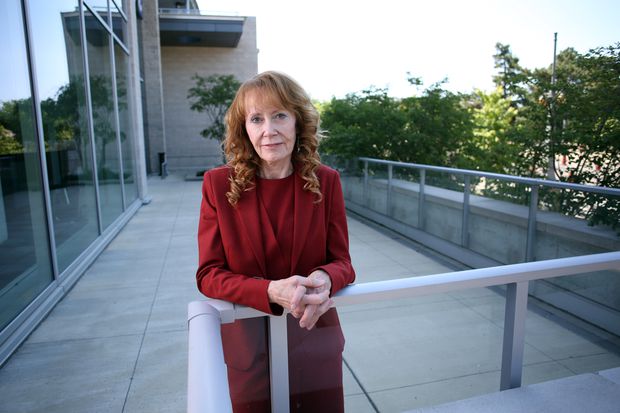
 As countries around the world race to find vaccines and treatments for the COVID-19 virus, Canada’s governments and innovative pharmaceutical companies have joined hands in a collaborative effort on a scale experts say is unprecedented in modern Canadian healthcare.
As countries around the world race to find vaccines and treatments for the COVID-19 virus, Canada’s governments and innovative pharmaceutical companies have joined hands in a collaborative effort on a scale experts say is unprecedented in modern Canadian healthcare.
Pamela Fralick is President of Innovative Medicines Canada, representing more than 40 of the country’s innovative pharmaceutical companies. She recently told the House of Commons Health Committee she is “proud of how our government has risen to the challenge.”
“I’ve spent most of my working life in the healthcare sector. I can honestly say that the degree of co-operation we are seeing across governments, our health systems, industry and civil society is something I’ve never experienced, and Canadians will be better off for it.”
Canada’s innovative pharmaceutical companies contribute $19 billion annually in economic activity, and support 30,000 high-value jobs. They also invest 10% of their revenues, or $1.2 billion per year, into research and development across the country. Ms. Fralick told the Commons committee those companies currently have more than 500 new products, medicines and vaccines in development in Canada, including therapies focused on some of the most devastating illnesses such as cancer, as well as rare and infectious diseases.
“Today, though, there is no greater priority than the fight against COVID-19,” she said. “Our members are collaborating like never before to accelerate the discovery and development of treatments for people infected with the virus, and of vaccines to stop its spread. Our members are also providing financial support and in-kind donations to organizations on the ground in Canada and around the world.”
Ms. Fralick appeared before the Commons committee with Dr. Dion Neame, a practising pediatrician and Country Medical Lead for the pharmaceutical company Sanofi Canada. He reminded parliamentarians that Canada has a long history of successful vaccine research that has saved millions upon millions of lives from deadly infectious diseases such as diphtheria and smallpox.
Fralick appeared before the Commons committee with Dr. Dion Neame, a practising pediatrician and Country Medical Lead for the pharmaceutical company Sanofi Canada. He reminded parliamentarians that Canada has a long history of successful vaccine research that has saved millions upon millions of lives from deadly infectious diseases such as diphtheria and smallpox.
“We are witnessing an unprecedented effort,” Dr. Neame said. “The ingenuity, innovative, creative and collaborative spirit and commitment of our industry are a testament to our values and our sense of responsibility to our country—Canada.”
He told the committee some of the current efforts by IMC member companies to find COVID-19 vaccines, treatments and testing technologies include:
- During the pandemic, 15 companies have opened up their libraries of molecular compounds to share with the global scientific community to spur the development of vaccines and treatments for the COVID-19 virus through the Bill & Melinda Gates Foundation.
- In just two weeks, Roche Canada received over 800 submissions from Canada’s scientific community through its COVID-19 innovation challenge, a $900,000 funding program created to bring forward innovative ideas to address the pandemic.
- In Atlantic Canada, BioVectra is manufacturing critical raw materials for COVID-19 diagnostic testing kits and collaborating with a number of Canadian biopharmaceutical companies and researchers on COVID-19 therapeutic products.
- Quebec’s Medicago is rapidly moving forward on clinical trials to assess the safety and efficacy of a candidate vaccine, and scaling up production.
- In British Columbia, Amgen is building on 20 years of experience in the field of therapeutic antibodies and is actively engaging in anti-COVID-19 therapeutic antibody discovery efforts.
- In British Columbia, Eli Lilly is working with AbCellera on the antibody side of COVID.
Ms. Fralick said that aside from direct involvement in COVID-19 vaccine research and development of new treatments, IMC’s member companies are making contributions to helping Canadians indirectly affected by the pandemic. For example, some companies are providing essential medicines free of charge to patients who may have lost private prescription drug coverage due to COVID-related unemployment.
Other companies are providing paid leave to employees with medical or healthcare training so they can volunteer healthcare facilities experiencing shortages of critical care skills during the pandemic.
Finally, IMC members created a special COVID-19 fund and have used some of the financial contributions to establish a research chair in pandemic preparedness, industry’s way of helping Canada prepare for the next health crisis.
Dr. Neame told the parliamentary committee that the huge international collaboration to find a COVID-19 vaccine – or more likely, many different vaccines – underscores the enormity of the scientific task at hand.
“We have to understand that we are dealing with infectious diseases…Some are very amenable to vaccine production, and some are much more difficult. We’re dealing with coronavirus, which sits in the middle. It’s not HIV, which is very difficult for vaccine development, but it’s going to be challenging.”
Dr. Neame added that it is “extremely complicated to make a vaccine.”
“Usually, we’re looking at 10 to 15 years. Now we’re trying to cram that into approximately one to two years.”
Ms. Fralick underscored to the parliamentary committee that this accelerated collaboration and rapid deployment of science had to be supported by responsive government regulatory regimes to ensure all Canadians have safe and ready access to these and other new therapies.

Innovative Medicines Canada is the Lead Sponsor of the recent Parliamentary Health Research Caucus Virtual Event, Afternoon Tea and Spirits: Conversation with COVID-19 Testing and Contact Tracing Experts. Visit rc-rc.ca/phrc-covid-19-trace/ to learn more.
